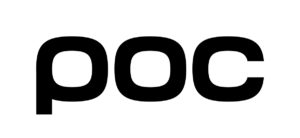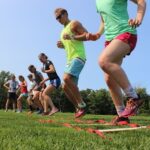It’s hard to believe the summer, what I consider Phase I of the ski racing prep period, is over. This summer was especially difficult given the COVID-19 crisis. Hopefully, the summer was devoted to building the foundation for your success this coming winter, despite the challenges that the pandemic has presented including limited on-snow time, no access to gyms, and, for many racers, losing some mojo to train. In all likelihood, your efforts focused on two areas. First, you engaged in an intensive physical conditioning program. The reality of ski racing in the second decade of the 21st century is that it has become a sport of power. As a consequence, your summer conditioning program was likely aimed at increasing your functional strength.
 Second, if the opportunity arose, you also spent spend time on snow. Summer on-snow training usually begins with a fundamentals camp in which you break down your skiing to its most basic technical and tactical components. Another reality of ski racing is that consistently fast skiing isn’t possible without solid technique and tactics. If you had a second on-snow camp this summer, it was probably dedicated to transferring those fundamentals to gates.
Second, if the opportunity arose, you also spent spend time on snow. Summer on-snow training usually begins with a fundamentals camp in which you break down your skiing to its most basic technical and tactical components. Another reality of ski racing is that consistently fast skiing isn’t possible without solid technique and tactics. If you had a second on-snow camp this summer, it was probably dedicated to transferring those fundamentals to gates.
I also hope you used Phase I of the prep period to train your mind and lay the mental foundation for your success this coming winter. Mental training, as you’ve probably heard me say many times, should be treated just like your conditioning and on-snow training; it should be comprehensive, structured, and consistent.
 With September having just arrived, you have entered Phase II of the prep period for the ensuing race season that is, due to COVID-19, of essential importance to how prepared you are for getting back on snow is as little as 60 days and racing as soon as 90 days (fingers crossed!). As the newest contributor to skiracing.com, Dr. Benjamin Costa (a physical therapist with extensive experience in ski racing), noted in his recent article, because conditioning was limited for many ski racers, you are at a greater risk of injury and, as a result, the fall conditioning period is absolutely essential in ensuring that you are physically ready to withstand the demands of our sport.
With September having just arrived, you have entered Phase II of the prep period for the ensuing race season that is, due to COVID-19, of essential importance to how prepared you are for getting back on snow is as little as 60 days and racing as soon as 90 days (fingers crossed!). As the newest contributor to skiracing.com, Dr. Benjamin Costa (a physical therapist with extensive experience in ski racing), noted in his recent article, because conditioning was limited for many ski racers, you are at a greater risk of injury and, as a result, the fall conditioning period is absolutely essential in ensuring that you are physically ready to withstand the demands of our sport.
So, what do you need to build on this fall to ensure that you are ready to “send it” this winter?
Physical Training
Your physical training should place a greater emphasis on quality over quantity (though you certainly need to maintain a good degree of volume). This involves getting the most out of your conditioning efforts that will result in your being the most fit version of you there has ever been. This shift also reduces the chances of burnout or injury at a time when you need to be healthy and rested.
You can increase the quality of your physical training and, at the same time, further strengthen your mental muscles by bringing your mental training into the gym. This involves thinking about what enables you to ski your best in on-snow training and applying those same tools and habits to your conditioning:
- Confidence: Make positive statements about your ability to achieve your training goal for that set (e.g., “I am going to do 10 reps.”).
- Commitment: Dedicate yourself to giving your fullest effort every rep and to finishing the set strong.
- Intensity: Match your physical intensity to your exercise. If you’re doing power cleans, you want to actively increase your intensity before you step under the bar. If you are doing yoga, you want to actively relax your body.
- Focus: Narrow your attention onto whatever will help you execute the exercise properly and safely. The focus could be technical (e.g., hips forward) or mental (e.g., explode).
- Breathing: Match your breathing to your exercise. If you are doing power training, your breathing should be more intense. If you are doing flexibility training, it should be calmer and slower.
Mental Training
Phase II of the prep period is essential to your continuing to strengthen your mind as you approach the winter. The most powerful mental tool you can use to build your mental muscles is mental imagery. By now, you’re probably sick of me bringing this up all the time, but I will say it again: If you’re not using mental imagery as a consistent part of your mental training program and overall training regimen, you’re not going to be the best ski racer you can best this coming winter.
The fall is an ideal time to make a real commitment to mental imagery because it allows you to get a ton of miles on snow and in gates (in your mind) before you actually get back on snow and back into gate training. This repetition is especially important because you missed so many days of training due to the premature end of the last race season due to COVID-19. You can more deeply ingrain technically sound and fast skiing with mental imagery, so, when the snow flies, it will be as if you’ve been skiing all fall and you can continue your skiing development from your first day on snow.
To help you develop an off-snow mental imagery program, you can download my Prime Ski Racing Race Imagery Program workbook.
Here’s what you should do with mental imagery:
- Choose one or two technical (e.g., wider stance), tactical (e.g., going deep at the top of the turn), mental (e.g., relaxing at the start), or performance (e.g., fast skiing) areas you want to focus on in your imagery.
- Create a ladder of training and race scenarios, from training courses on your home hill to low-level races to your most important races of the season.
- Set aside a specific time each day three times a week and put an alert in your phone as a reminder.
- In each imagery session, get comfortable, close your eyes, take five deep breaths, and then guide yourself through two or more training or race runs incorporating your imagery goals (see #1 above) into your imagined skiing (I have downloadable mp3 audio recordings for training, 2-run events, and 1-run events that can guide you through these scenarios).
- Stay committed and consistent with your imagery throughout the fall.
On-snow Training
If you’re fortunate enough to ski this fall, your on-snow training will also narrow in focus. As the winter approaches, you should shift your emphasis in your skiing in the following ways:
- Big technical and tactical changes to small adjustments and fine tuning
- Focusing on details to focusing on your overall skiing
- Experimenting with your equipment to dialing it in
- Trying out different ways of being physically and mentally prepared before training runs to establishing a consistent training routine that you can translate into a race routine
- Solid technical and tactical skiing to consistently fast skiing.
Get Ready in the Fall for the Winter Grind
The long winter of training and racing is incredibly taxing physically and mentally. And the volume on both will be turned up even more because of the accommodations that you will have to make due to COVID-19. Another important goal for the fall is to prepare yourself to stay healthy and rested from your first turns of the season until your last. The habits you establish in the fall will, hopefully, carry you through the winter with strength and stamina.
These habits you instill in Phase II of the prep period should include:
- Sufficient and consistent sleep (young people don’t get enough sleep these days)
- Healthy eating (food fuels or contaminates your body)
- Good study habits (stress in school will hurt your skiing)
- Making your ski racing a priority over other interests (don’t let poor choices hurt your skiing)
- Balanced use of technology (which threatens sleep and distracts you)
- Rest and recovery (allow your mind and body to rejuvenate after intense training blocks)
- Being happy (a happy racer is a fast racer).
What you do this fall will have a big impact on how you ski this winter. Using what I’ve just described above, as well as advice from your coaches and parents, take the fall to prepare yourself to be the best ski racer you can be this winter. So, when you get into the starting gate of your first race of the season, you are physically and mentally ready to enter Phase III of your race season, it’s called “time to rock & roll!”
Want to get your mind in the best shape of your ski racing life? Learn more about my two online mental training courses designed just for ski racers: Prime Ski Racing 101: Train Your Mind like a Champion and, if you’ve already take PSR 101, Prime Ski Training 202: Total Preparation for Maximum Performance.



